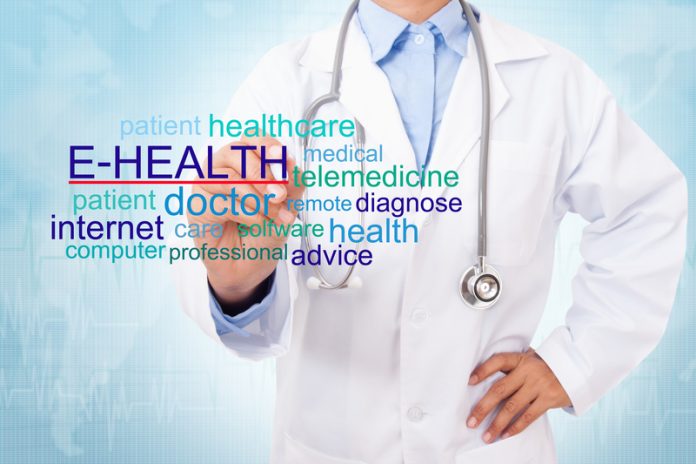Dr. Paul De Raeve, Secretary-General of the European Federation of Nurses Associations (EFN) explains why the deployment of eHealth services in nursing and social care are key drivers for modern societies today
The deployment of eHealth services in nursing and social care are key drivers for modern societies. However, the current ‘unmet needs’ of different stakeholders create a barrier for successful and deployable digitalisation. In societies where a growing number of people live with co-morbidities, non-communicable diseases, and complex care pathways, the people-centred policy approach can only function when tailored to the end-user and frontline service provider needs.
As such, co-design of policies and technology should become the rule, not the exception. This implies that companies’ business models will need to adapt to these unmet stakeholder needs before they jump into the rhetoric of ‘measuring outcomes’, desperately holding on to ‘disease-oriented value-based health systems’. In contrast, people-centred care implies the care model being organised around the health and social needs of end-users, rather than diseases.
Integrating primary and secondary care on one hand, and health and social services, on the other hand, is based on a people-centred model of care that implies both frontline innovation and implementation research. Both can be complementary. Therefore, when designing future EU health and social care ecosystems, supported by frontline e-health services, it is crucial that digitalisation, including Robotics and Artificial Intelligence, supports hands-on care and coordination of care to reduce the unmet needs.
Making nursing more central to health policy and technology design
Technology cannot result in pulling nurses away from the bedside, instead, direct patient care needs to be urgently increased and technology, real innovation must support nurses doing so. The industry business model needs to incorporate the frontline workload challenge, to increase both quality and safety.
If meetings, projects keep on delivering documents, brochures, lancet articles, and not implementing findings, not just pilot projects, nothing will change. We see often millions spend on projects, but nothing implemented. So, industry develops a lot, but not with the end-user.
Making nursing more central to health policy and technology design and ensuring that nurses can use their skills, including e-skills, to their full capacity, can lead to improved health and well-being, enabling the achievement of Universal Health Coverage. Supporting digital skills of the nursing workforce is even more needed in the context of the constantly changing nature of healthcare systems and healthcare delivery.
EU eHealth
The EFN eSkills and Health workforce report indicates the gaps in eSkills, while providing for a series of practical steps to be taken to make digitalisation happen. The health professional organisations, together with the patients’ organisations, and the industry (SMEs) should consider eSkills development for the health workforce to address the increasing unmet needs, which then contributes to the implementation of the EU eHealth Action Plan 2012-2020.
Furthermore, supporting the empowerment of women in innovation and research, making business models more gender-sensitive, will automatically lead to wellbeing, productivity and growth. Engaging nurses in policy and technology designs will have the triple impact of contributing to three of the Sustainable Development Goals – improving health, promoting gender equality, and strengthening economies (APPGGlobHealth, 2017).
To this regard, the EFN has produced EU guidelines on eHealth services in Nursing and Social care, which mainly focus on prevention, clinical practice, advanced roles, integrated care and nurse prescribing. ENS4Care has provided an overview of the range/type of eHealth services currently being used for prevention, to extract knowledge on the use of eHealth applications as tools to enhance healthy lifestyles that will boost prevention in healthcare from a life circle approach, with gender being a key element in the equation to harness and gain maximum benefit from eHealth technologies.
The EU has ambitious plans to digitalise the market. Therefore, to be successful, it is crucial that the EU institutions, and the EU Commission, value and recognise the contribution of frontline nurses who daily are working to give of their best to people/citizens/patients in the most challenging environments. As such, the European Commission, DG Connect, should play a crucial role in steering digitalisation – to make sure that the unmet needs of end-users stay on the political agenda and funds are directed towards addressing these unmet needs – making digitalisation more ‘fit for purpose’.
In EFN’s opinion, concrete EU actions to close down the implementation gap is urgently needed, not by putting Civil Society, NGOs, professionals, into the cloud, but working out concrete and focused actions frontline. Advancing an intersectoral policy agenda across the finance, labour, education, health and social sectors, should benefit end-users and SMEs. Large-scale investments in ‘fit for purpose’ eHealth solutions will become a precondition for growth.
Moving digital care to the community fosters the added value of health and social wellbeing as drivers in combating inequalities. A genuine commitment to reducing health inequalities means that brave decisions about what to start funding and possibly what to stop funding need to be made, hopefully within FP9. As such we can move from theories to deployment; from political speeches to frontline implementation; from recommendations to concrete actions for change. The end-users will need to lead this digitalisation.
De Raeve P., Gomez S., Hughes P., Lyngholm T., Sipilä M., Kilanska D., Hussey P. & Xyrichis A. (2016) Enhancing the provision of health and social care in Europe through eHealth. International Nursing Review. Online: http://onlinelibrary.wiley.com/doi/10.1111/inr.12266/abstract
Dr. Paul De Raeve, RN, MSc, MStat, PhD
Secretary-General
European Federation of Nurses Associations (EFN)
Tel: +32 2 512 74 19











